Excellent software and practical tutorials
CrystalDiskMarkCrystalDiskMark is a very good disk status monitoring tool. This software is very powerful and can monitor the status of the computer disk in real time, such as read speed, write speed, transmission power, mixed read and write, 4K performance test, etc., so that you can understand the status of your disk in real time, which is very convenient.
CrystalDiskMark
CrystalDiskMark (hereinafter referred to as CDM) is a JapaneseHard Drive TestThe main reason is that the traditional mechanical disk test software has too many limitations (mainly based on continuous transmission speed). In order to show the strong random performance of SSD, the test items must be slightly improved (add 4KB random performance test). From version 3.0, NCQ test (QD32) and data model selection (random fill, fill with 0, fill with 1) are added.
The latest updated version is CrystalDiskMark8.0.1. CrystalDiskMark is a simple disk benchmark software.
Official Website:https://crystalmark.info/en/

Before the CrystalDiskMark test, a test file will be generated (the size depends on the user settings). Generally speaking, the larger the setting, the less interference the data cache will cause, and the results can better reflect the real performance of the SSD. However, the disadvantage is that it will seriously affect the durability of the SSD (writing too much data affects P/E).
The CrystalDiskMark test items are divided into continuous transfer rate test (block unit 1024KB), random 512KB transfer rate test, random 4KB test, random 4KB test
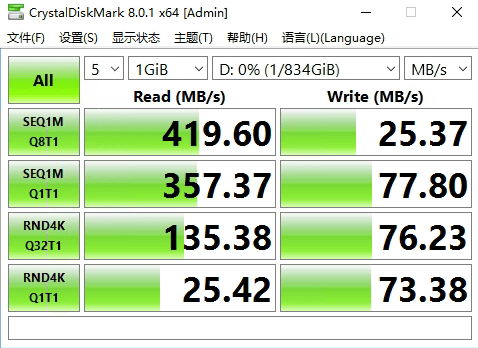
- SEQ1MQ8T1: Sequentially read and write test files with 1MiB block size, queues = 8, threads = 1
- SEQ1MQ1T1: Sequentially read and write test files with 1MiB block size, queue = 1, thread = 1
- RND4KQ32T1: Random read and write of a 4KiB test file, queues = 32, threads = 1
- RND4KQ1T1: Random read and write of a test file with a block size of 4KiB, queues = 1, threads = 1
Click ALL to start the hard diskReading and Writing Test, click ALL and wait for a while. A test package of corresponding size needs to be generated for read and write tests.
The "5" after ALL is the number of test read and write times, which is the default. "1GiB" is the size of the test read and write file. The following is which hard disk to test. If you want to test drive D, select D, and if you want to test drive C, select C. The default is drive C. "MB/s" is the unit of test write data.
- 1GiB = 1024MiB = 1024x1024KiB = 1024x1024x1024B
- 1GB = 1000MB = 1000x1000KB = 1000x1000x1000B
How to start a benchmark: 1. Select the Number of test runs, Test size and Test drive.
2. Click the All button (or other button) to start the benchmark.
Test times: 1 to 9. The default value is 5.
Tested sizes: 16MiB, 32MiB, 64MiB, 128MiB, 256MiB, 512MiB, 1GiB, 2GiB, 4GiB, 8GiB, 16GiB, 32GiB, and 64GiB.
The default value is 1GiB. For slow storage (USB sticks, etc.) it may be too large, so you should choose a smaller size.
Test hard disk: C:\, D:\, etc.
If you want to test a network drive, execute CrystalDiskMark as a standard user (UAC: No).
Test units: MB/S, GB/s, IOPS, μs (average latency)
After the CrystalDiskMark test is completed, data will be generated, and then the performance of the hard drive can be seen by comparing it with the data of other hard drive tests.
During the CrystalDiskMark test, you can open the Task Manager to view the read and write status of the hard disk.

- CrystalDiskMark may shorten the life of your SSD/USB storage.
- Benchmark results are not compatible between different major versions.
- "MB/s" means 1,000,000 bytes per second.
- The result depends on test file size, test file location, fragmentation, IDE (PATA) / SATA / RAID / SCSI / NVMe controller and CPU speed, etc.
- Part of the SSD depends on the test data (random, 0fill).
- If you execute CrystalDiskMark with administrator privileges, it will not show network drives.
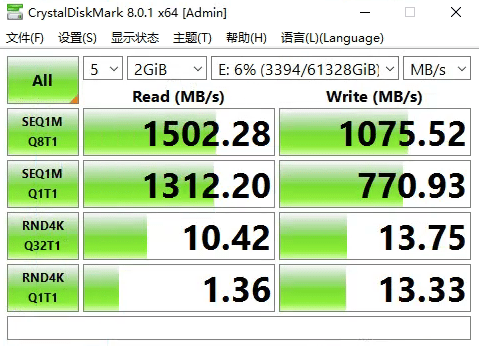
Download address:https://crystalmark.info/en/download/#CrystalDiskMark




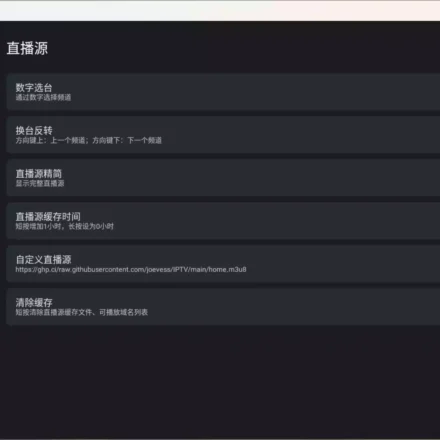
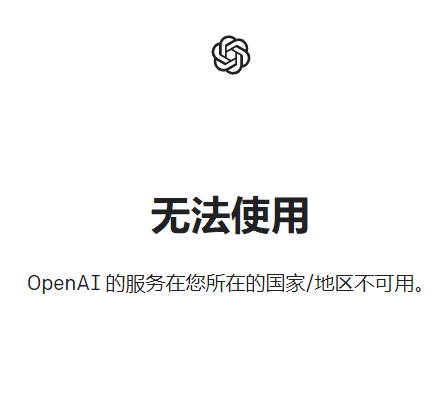
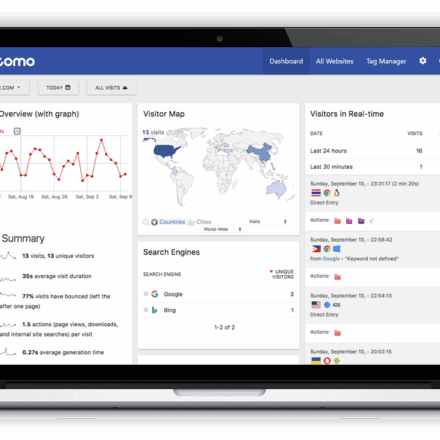
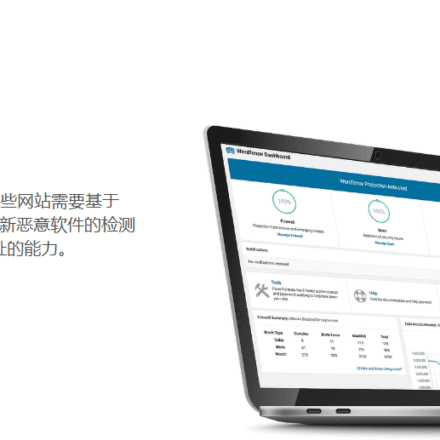

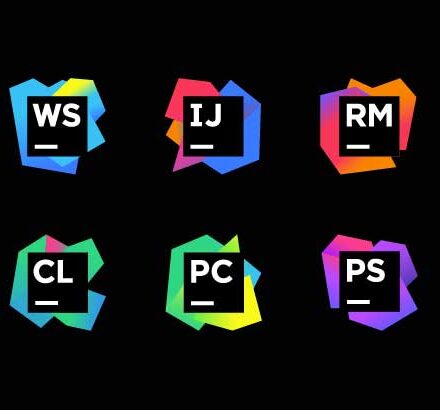

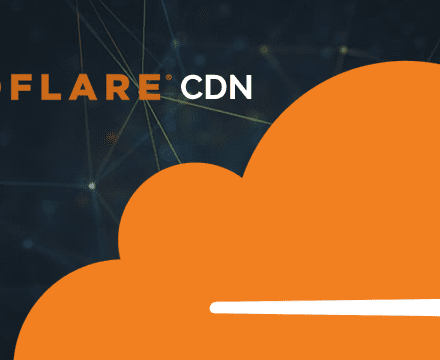

You can view the hard disk status in detail